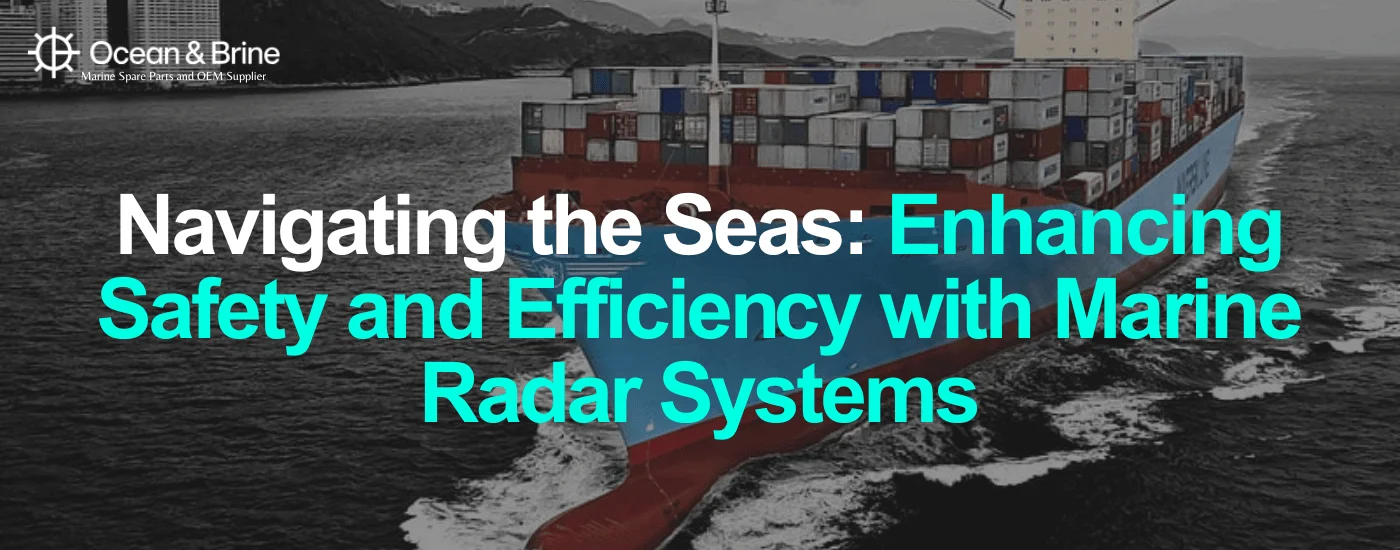In the dynamic world of maritime operations, ensuring safety and optimizing efficiency are paramount. Marine radar systems play a crucial role in achieving these objectives by providing vessels with valuable information about their surroundings. In this blog post, we will explore the significance of marine radar systems, their key functionalities, and how they contribute to the safe and efficient navigation of srehips on the open seas.
Understanding Marine Radar Systems:
Marine radar systems utilize radio waves to detect and track nearby objects, including other vessels, landmasses, navigational hazards, and even adverse weather conditions. By emitting radio signals and analyzing the reflections, these systems generate real-time data that helps ships maintain situational awareness and make informed navigational decisions. Marine radar has become an indispensable tool for mariners, offering quick detection and tracking capabilities even in challenging weather conditions or low visibility situations.
The Key Functionalities of Marine Radar Systems:
1. Collision Avoidance: One of the primary functions of marine radar is to enhance collision avoidance capabilities. By accurately detecting nearby vessels, including those beyond the visual range, radar systems provide early warnings and enable timely course adjustments, helping to prevent potential accidents.
2. Navigation Assistance: Marine radar assists in safe navigation by providing information about navigational aids, such as buoys, lighthouses, and channels. It allows ships to identify landmarks and establish precise positions, aiding in course plotting and maintaining a safe passage.
3. Weather Monitoring: With the ability to detect weather patterns, marine radar systems enable ships to monitor approaching storms, heavy rainfall, or fog banks. This information is crucial for making weather-informed decisions, such as altering routes or taking necessary precautions to ensure the safety of the vessel and its crew.
4. Search and Rescue Operations: In emergency situations, marine radar plays a vital role in search and rescue operations. By scanning the surrounding areas, radar systems can help locate distressed vessels or individuals in the water, aiding in swift and efficient rescue efforts.
How Marine Radar Systems Enhance Safety and Efficiency:
1. Improved Situational Awareness: Marine radar, including high-quality systems provided by industry leaders like Ocean & Brine, provides mariners with a comprehensive view of their surroundings, helping them identify potential risks and navigate safely through congested areas, narrow passages, or adverse weather conditions.
2. Enhanced Navigation Precision: By accurately determining the distance and bearing of objects, marine radar systems enable precise navigation, reducing the risk of grounding, collisions, or other navigational errors.
3. 24/7 Operation: Marine radar, including the solutions offered by Ocean & Brine, operates around the clock, providing continuous monitoring and detection capabilities, regardless of daylight or visibility conditions. This ensures vessels can maintain safe operations at all times.
4. Integration with Navigation Systems: Modern marine radar systems, including those provided by Ocean & Brine, can be seamlessly integrated with other navigation tools, such as electronic chart displays and automatic identification systems (AIS), further enhancing situational awareness and facilitating efficient route planning.
Marine radar systems, including the high-quality solutions offered by Ocean & Brine, are indispensable for the safe and efficient navigation of ships, offering collision avoidance capabilities, navigation assistance, weather monitoring, and support for search and rescue operations. With their ability to provide real-time information, enhance situational awareness, and aid in precise navigation, marine radar systems have become an essential tool for mariners worldwide. By investing in Ocean & Brine’s radar systems and staying abreast of the latest technological advancements, ship management firms can ensure the safety of their vessels, crew, and cargo while optimizing operational efficiency in the challenging marine environment.
